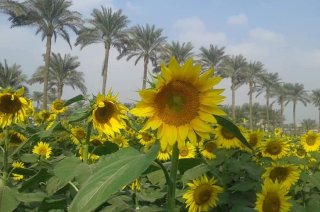
CREATE
Cross-Border Climate Vulnerabilities and Remote Impacts of Food Systems of the EU, Turkey and Africa: Trade, Climate Risk and Adaptation
Project coordinator:
Dr. Göksen Çapar, Ankara University, Turkey
Partner countries:
Egypt, Morocco, the Netherlands, Turkey
Website:
https://www.create4 climate.com/
Scientific abstract
Knowledge and research on cross-border climate vulnerabilities and impacts of a geographic area is still a new topic in the scientific literature. Nowadays, climate risk and impact assessments of food-systems focus typically on the production within a geographic area only. Consequently, knowledge and research on the cross-border climate vulnerabilities of food-systems have hardly received any attention.
To address remote climate risks and impacts related to food systems, CREATE will develop a novel cross-border climate risk/impact assessment methodology for food value chains based on embedded resource use (e.g water, land, carbon) trade concept that maps representative connections between European socio-economic activities and remote climatic hazards in Africa and in Turkey. CREATE’s climate assessment starts at the farm level in producing regions in Africa and Turkey, focusing on crop yield changes under different climatic stressors and translates these impacts in a cascading way to the food systems and value chain in the EU in terms of vulnerabilities. It also looks at the socio-economic and environmental impacts of these trade relations.
The study will focus on four case studies: the Netherlands (Europe, importing country), Turkey (Europe, importing/exporting country), Morocco (Africa, exporting country), and Egypt (Africa, exporting country). Cross-border climate risk analysis will be performed individually, and stakeholder workshops will be organized. Country assessments will include climate adaptation measures and policy recommendations.
The outcomes of CREATE will be used to increase awareness of the risks that climate change poses to the agro-food trade and the economy. They can contribute to efforts by the governments (macro scale), the communities (meso scale), agricultural producers (micro scale) in the case study countries, by providing essential information for promoting actions towards mitigating the consequences of climate change on agro-food trade.
Partners
University of Sultan Moulay Slimane, Beni Mellal, Morocco
FutureWater (FW), Wageningen, the Netherlands
National Research Centre (NRC), Dokki, Egypt
Green Power for Agriculture and Irrigation (GPAI), El-Bagour, Egypt
R2Water Research and Consultancy (R2W), Amsterdam, the Netherlands
National School of Agriculture (ENA), Meknès, Morocco
GTE Sustainability and Energy Consultancy, Ankara, Turkey
